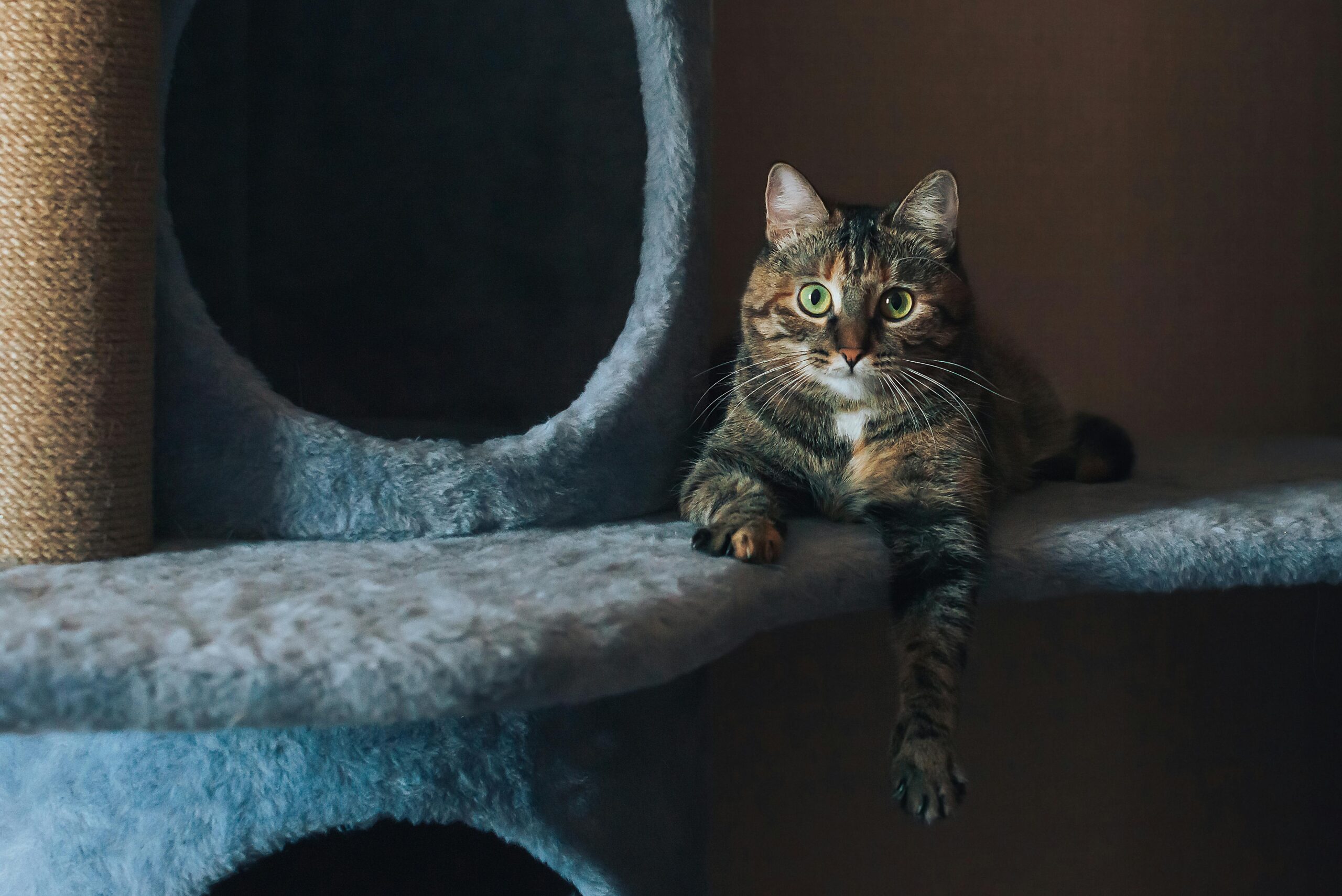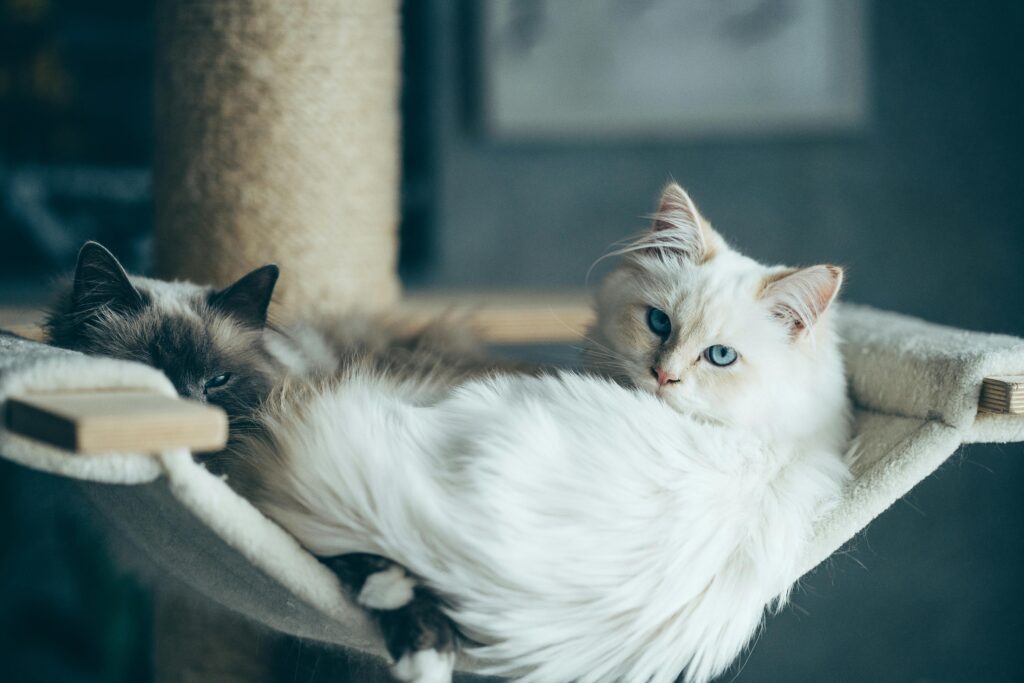Search

Living in an apartment with a cat can be both a joy and a challenge. Your feline friend wants to jump, scratch, and explore—but your square footage might say otherwise. So here’s the question: Can a cat tree really make a difference in a small space?
Absolutely. And not just for your cat, but for you too.
Even in a cozy apartment, cats need places to climb, scratch, hide, and rest. A cat tree designed for apartments gives them all of that—without taking over your living room.
Without a dedicated space, cats often turn to your furniture. Think scratched couches, knocked-over plants, and late-night zoomies on your kitchen counter. Sound familiar?
Giving your cat a tree isn’t just about entertainment—it’s about giving them a healthy outlet for their instincts.
Let’s talk about Sarah and her rescue cat, Bella. They live in a 450-square-foot studio in downtown Chicago.
“Bella was wild when I first brought her home,” Sarah recalls. “She’d leap onto shelves, knock over my plants, and scratch everything but her toys.”
After reading a few blogs, Sarah bought a compact, multi-level cat tree made for small apartments. And the results? Amazing.
“Bella immediately claimed the top perch. Now she naps there during the day and plays on it at night,” Sarah says. “I haven’t had a broken mug or clawed chair in weeks.”
It’s not just Sarah. A 2024 pet lifestyle survey found that 80% of cat owners noticed fewer behavior problems after adding a cat tree to their home. Even better, 67% reported stronger bonds with their cats thanks to reduced stress and more positive interaction.

Not all cat trees are made the same—especially when space is limited. Here’s what to consider when picking one for your apartment:
When floor space is tight, height is your best friend. A tall cat tree for small apartments uses vertical space to give your cat room to climb without cluttering your floor.
Cats love variety. Choose a multi-level cat tree with different platforms, cozy spots, and maybe even a hammock. The more ways they can play and rest, the better.
Gone are the days of bulky beige carpet towers. Today’s modern cat furniture for apartments includes sleek, stylish trees that actually complement your home decor.
Your cat tree should be sturdy and safe—even if it’s small. Look for durable materials and a strong base to prevent tipping when your cat jumps or climbs.
Choosing a cat tree might seem like a small decision—but it can create a big shift in your home. You’ll reduce mess, protect your furniture, and most importantly, give your cat a space that’s truly theirs.
And that moment when your cat is curled up on the top level, dozing off in the afternoon sun? That’s when you know you made the right choice.

Q1: What’s the best height for a cat tree in an apartment?
A: Typically between 4 to 6 feet. It’s tall enough for climbing, but still fits in most rooms.
Q2: Should I get a wall-mounted cat tree?
A: Wall-mounted options save even more space, but they may require tools and installation. They’re a great choice for very small apartments.
Q3: Can I repurpose furniture as a cat tree?
A: Not recommended. Regular furniture lacks grip and stability. Cat trees are designed for your cat’s safety and comfort.
Q4: Cat condo vs. cat tree—what’s the difference?
A: A cat condo usually offers enclosed resting spots. A cat tree has open platforms and climbing areas. Many great options combine both!
Q5: What if my cat ignores the cat tree?
A: Try placing it near a window or using catnip to attract interest. Most cats will explore and warm up to it over time.
Smart Self-Cleaning Cat Litter Box with App Control and Ionic Deodorizer, 65L
Leave a comment